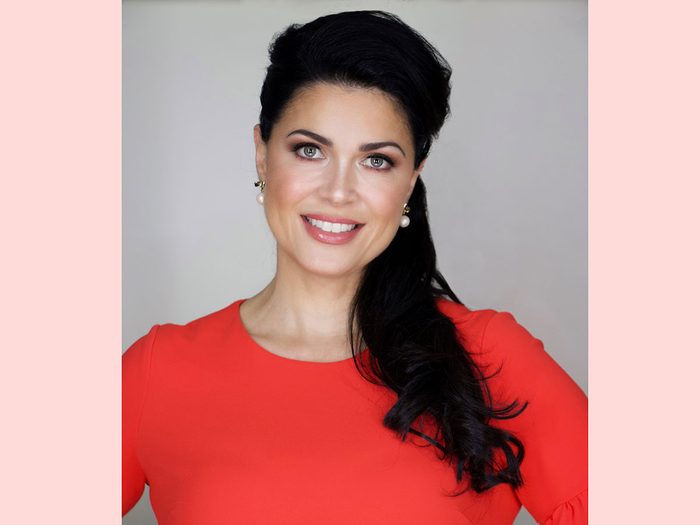
A Dual Life
Sandra Elia lived two lives. In the first, she spent 15 years struggling against the scale. Going from overweight to obese and then morbidly obese, Sandra weighed more than 260 pounds by age 29. She felt unhappy, undesirable, uncomfortable and desperate for change. In the second, Sandra is healthy and happy. She’s active, she eats well and she’s Canada’s No.1 Food Addiction Councillor, devoted to guiding others on their weight-loss journey from self-hate to self-love. Here’s Sandra’s story.
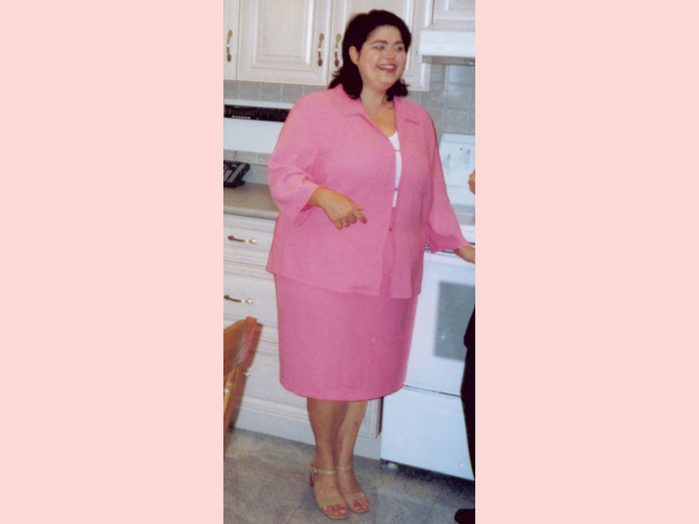
The Tipping Point
After trying every diet under the sun—including a scent pen that curbs cravings and a machine that shakes your stomach into a six-pack—Sandra was still searching for the solution. Then, one evening as she flipped through the Yellow Pages, she landed on Overeaters Anonymous and soon found herself in a room filled with people who also used food for comfort, stress relief and ailments food can’t fix. Surrounding her were others who couldn’t stop at one slice of pizza; who’d instead eat the whole pie. Among other overeaters, Sandra discovered she was a food addict and began her road to recovery.
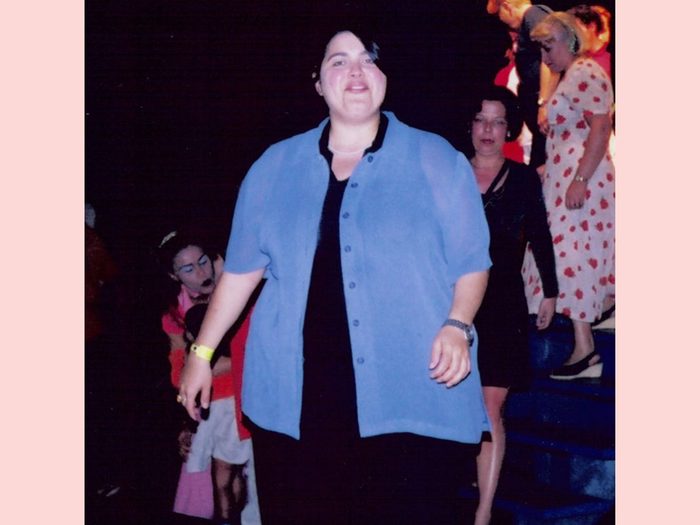
An Addict
At Overeaters Anonymous, Sandra learned to steer clear of trigger foods—the ones she obsessed about, which she couldn’t limit to one small serving. Much like alcoholics can’t have just one cocktail, Sandra had to eliminate her triggers altogether. “When I walk into a room and see cookies, my brain lights up in a more intense way than someone who’s been weight-stable their whole life,” she explains. Jaclyn Pritchard, a Registered Dietitian at Cleveland Clinic Canada in Toronto, agrees: “Food, alcohol and drugs flood the brain with the feel-good neurotransmitter dopamine. Losing weight means changing the way your brain thinks about food.”
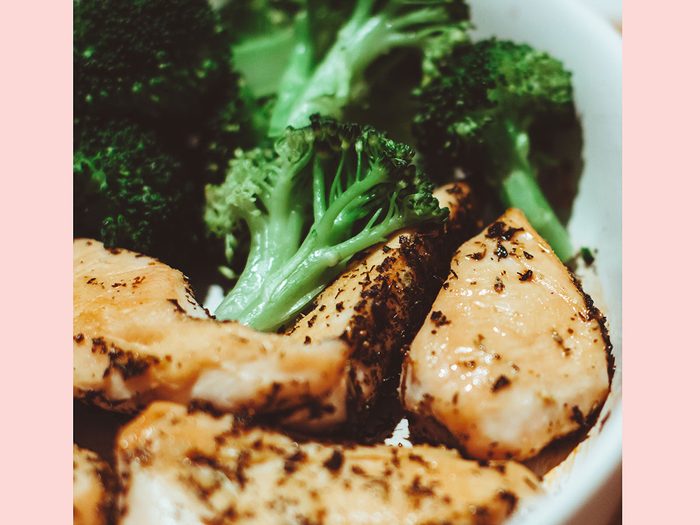
It’s Simple
“I don’t eat refined sugar, refined flour and anything from a deep fryer,” says Sandra. It’s an easy-to-remember rule that allows her to travel and eat out. And, you know what? She’s stopped craving those foods altogether. She still eats foods she loves like chicken (with tzatziki) and broccoli (with feta), but one serving satiates her. “I can control my eating; my mind isn’t racing for more.” She also upped her activity levels, but explains that changing one’s food intake is far more important than exercising for weight loss.
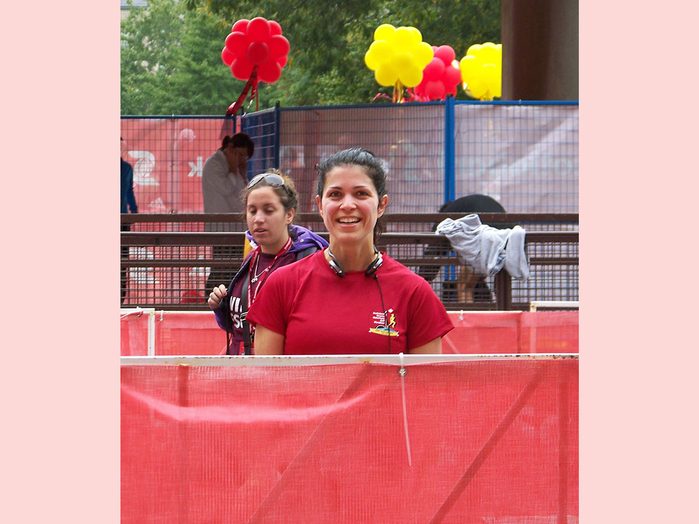
Relapse
Sandra’s relapsed twice, but both served as lessons in recovery. Once, relapse was related to a stressful life event. “Stress and lack of sleep cause really intense cravings that you’re more likely to give into,” she says. “It’s important to have a network of support.” The other time, it was because of the scale: “I decided to run a half marathon and noticed my jeans were getting loose. When I stepped on the scale, I was at my lowest adult weight…but ten pounds from my dream weight.” So she adopted a restrictive diet, but her body responded by going into starvation mode, causing cravings for high-calorie foods that led Sandra to gain it all back and more.
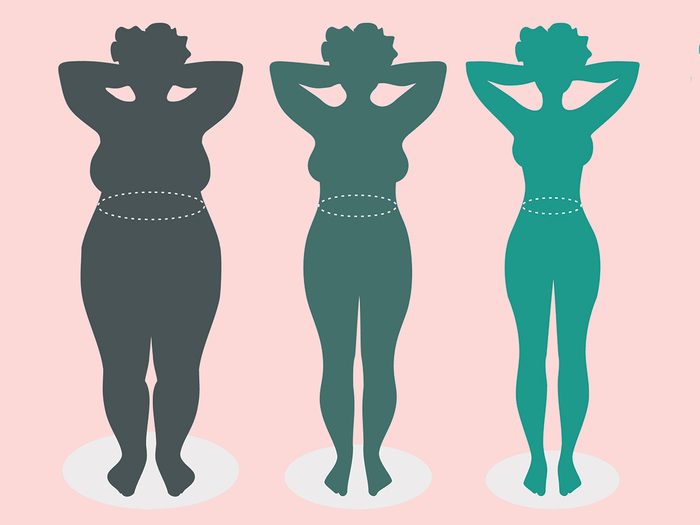
Know Thy Enemy
“Ninety-five percent of diets fail,” says Pritchard. “Most people who follow a diet regain the weight, often plus more.” The old adage “calories in/calories out” oversimplifies the weight loss struggle, and while Sandra would never tell anyone not to do intermittent fasting or eat Keto, she’d only recommend it if someone loves it and can maintain it for the rest of their life. Sandra also doesn’t step on the scale anymore. “It’s too much power for an inanimate object. Weight loss isn’t about achieving a number,” she says. “People say, ‘I’m only going to eat like this if my weight goes down,’ but when they plateau—which we all do—they might abandon their effort. Diet and exercise should be about living your best life.”
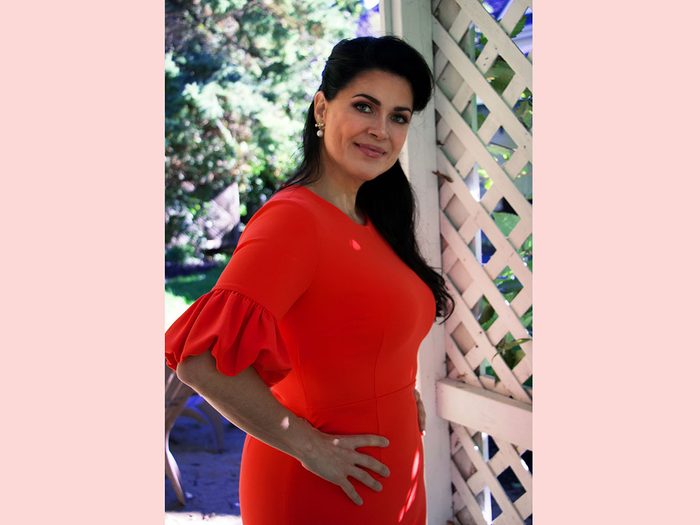
All About Love
“A big part of weight loss is learning self-acceptance and self-love,” says Sandra, who learned at Overeaters Anonymous that unconditional love meant loving herself whether she was 260 points or 130. “You can’t negotiate, first I’ll lose the weight and then I’ll love myself. You must create an internal environment that’s kind, gentle and loving, because we all flourish in that environment. No one, absolutely no one can flourish in an environment that is harsh and critical. Hate will always drain you of motivation; loving thoughts give you the energy you need to get there.”
Next, read about common weight loss myths.
